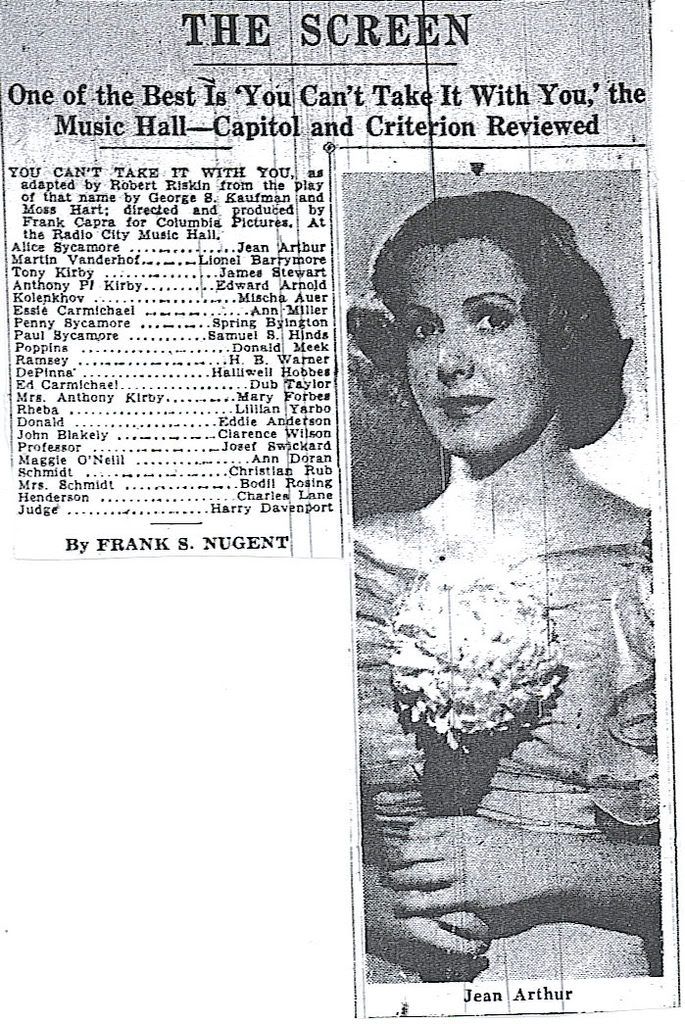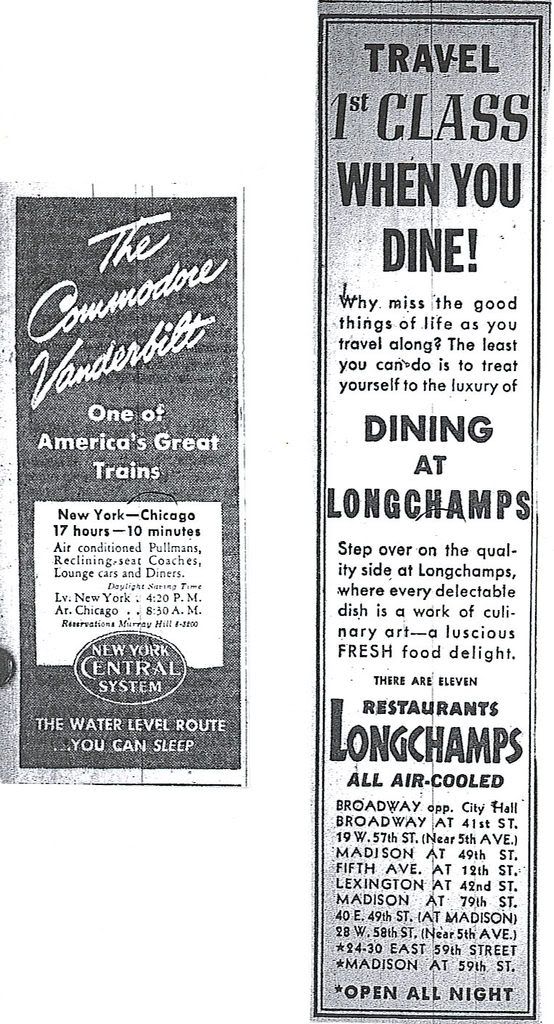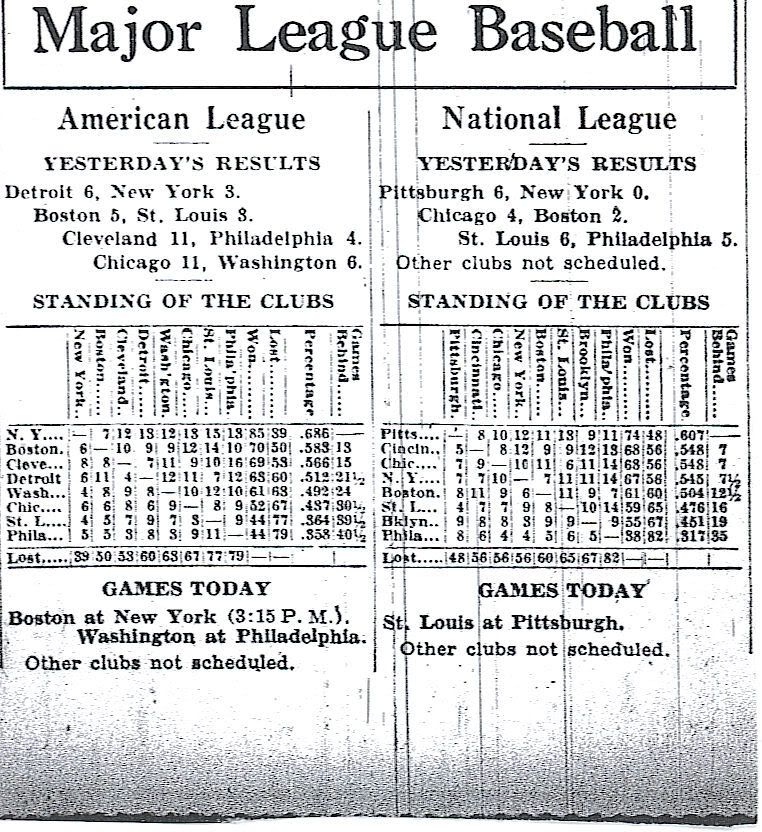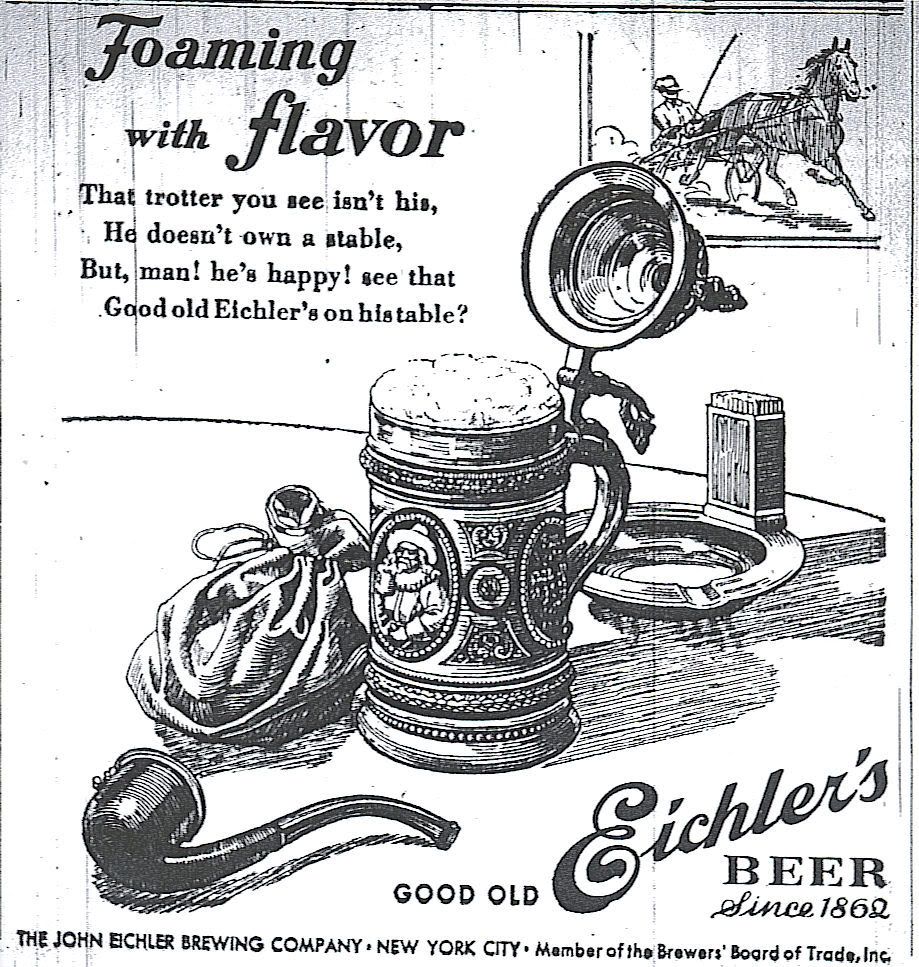
Posted on 09/02/2008 5:48:53 AM PDT by Homer_J_Simpson

Pulitzer Prize plays do not grow on bushes, a circumstance which is bound to complicate their grafting to the cinema. “You Can’t Take It With You” was a tremendously amusing play. George Kaufman and Moss Hart, who wrote it, had just three curtains to make, one set to cover them all and an irresistibly comic panel of characters. Brevity was not merely the spice of their wit, but the salvation of it. Everything happened so quickly, and so humorously, that only postmortem reflections suggested that the dramatists might have been raising a towering, but essentially fragile, structure. Grandpa Vanderhof himself was an inexcusably anachronistic figure: no one, these days, can afford not to pay an income tax.
Columbia’s film of the play, which moved into the Music Hall yesterday, has had to justify that Pulitzer award. Simply because it is a motion picture, and not a play, it has had to explore the Kaufman-Hart characters more thoroughly than the playwrights had need to. Instead of three curtains, there had to be a flowing narrative; instead of one set, there had to be a dozen (or more); instead of seeing things always through the direct, but none the less distorted, eyes of the amazing Vanderhofs and Sycamores, there had to be a certain respect for the viewpoint of the abused and ultra-rich Kirbys.
Frank Capra, its director, and Robert Riskin, its adapter, have vindicated that Pulitzer award, even at the expense of comedy. The characters Messrs. Kaufman and Hart invented were not undimensional after all. When you look them through, as the picture does, you discover they were people, not caricatures. The playwrights drew their outlines; the picture has filled them in. Vanderhofs, Sycamores and Kirbys all have substance now. Beyond doubt, none of them is quite so funny - except possibly the hungry Russian, the Lit’ry Mrs. Sycamore, the ballet-dancing Essie – but they are far more likable, far more human.
Humans, of course, are not as laughable as caricatures of humans. “You Can’t Take It With You” isn’t as comic on the screen as it was on the stage. At least, not in its total effect. When it chooses to be funny it can be funny as the dickens. But it chooses, too, or the screen, to be serious and, at times, moral and sentimental. Grandpa Vanderhof’s philosophy was in defense of simple enjoyment of life. On the stage, its application was pretty comic; in reality, even in the reality of the screen, it can become pretty serious.
Mr. Riskin has done a lot with the story, chiefly in deference to the feelings of the Kirbys of the world, but it remains the high-spirited fable of the Sycamore girl and the Kirby boy who had to introduce their families to each other. The Kirby Srs. were from Wall Street and Park Avenue. The Sycamores and Vanderhofs were of a long line of amiable lunatics. Grandpa, who quit work one day thirty-five years before because it wasn’t fun; Mrs. Sycamore, who wrote endless plays because some one left a typewriter on her doorstep; Mr. Sycamore and Mr. De Pinna, who made their own fireworks; Essie, who danced, and Ed, who fooled around with a home-made printing press and revolutionary circulars. The Sycamores and Vanderhofs always were sitting on gunpowder kegs. There were bound to be sparks when the flinty Kirbys came to call.
It’s a grand picture, which will disappoint only the most superficial admirers of the play. Columbia, besides contributing the services of its famous writing-directing team, has chosen its cast with miraculous wisdom. Lionel Barrymore’s Grandpa is the least bit of a let-down after Henry Travers’s playing of the role on Broadway, but we’re willing to admit our dissatisfaction may be due to the fact that Mr. Travers’s Grandpa came first. Beyond that prejudicial doubt we enthusiastically admire every one and everything – Jean Arthur’s Alice Sycamore, James Stewart’s honest young Kirby, Edward Arnold’s badgered tycoon, Spring Byington’s delightful Penny, Donald Meek’s Mr. Poppins (a new one on Mr. Kaufman) and all the other names on the long cast sheet. And, before we forget it, “You Can’t Take It With You” jumps smack into the list of the year’s best.



I predict a Best Picture award for this one
Disclaimer: Opinions posted on Free Republic are those of the individual posters and do not necessarily represent the opinion of Free Republic or its management. All materials posted herein are protected by copyright law and the exemption for fair use of copyrighted works.